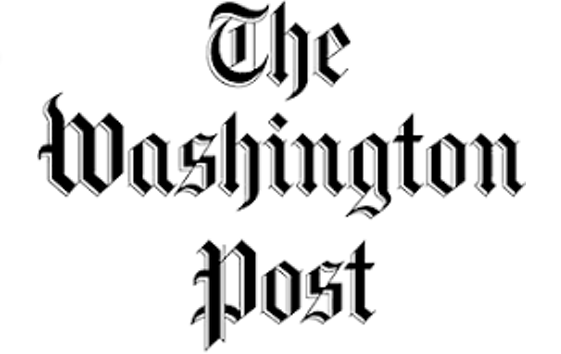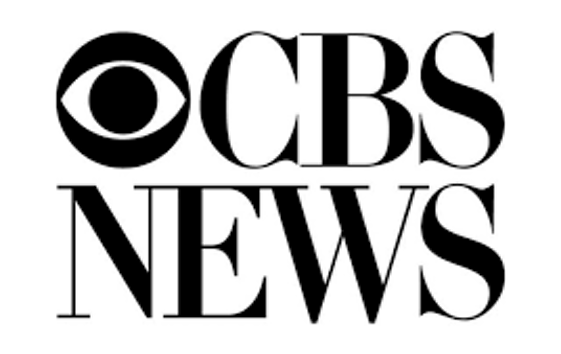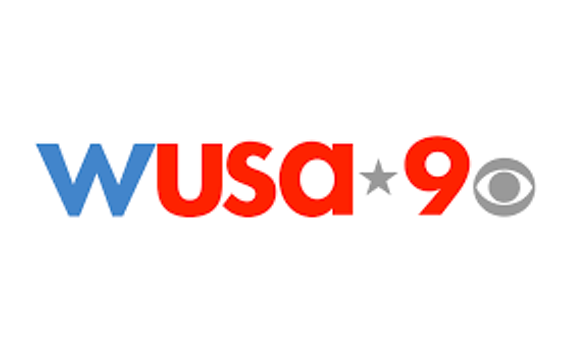These programs differ greatly and change frequently, which makes a side-by-side comparison difficult. I have organized my analysis based on the areas of coverage an ideal plan would include after which I have identified which plans could best meet your needs. Disclaimer: this information is not intended as legal advice, nor does it guarantee an outcome in your personal circumstances or any benefit from any plan. Of course, the terms and costs of these plans are subject to change. Nevertheless, I hope this analysis provides you a starting point for making your own comparison among the leading service providers.
Criminal defense costs: This is by far the most important aspect of these self-defense products, paying the cost of an attorney to help you show that your use of force was legally justified. Those costs in a shooting incident can be staggering. It is important that these costs be paid up front. I would not recommend any product that pays your expenses only in the event you are acquitted. As Branca says, “that is like saying we’ll give you an army once you win the war. You need the army to win the war.” Accordingly, none of the products discussed herein are reimbursement plans.
Criminal defense costs, however, do not stop at attorneys’ fees. You are very likely to need expert witnesses and/or investigators on your defense team. George Zimmerman’s defense costs exceeded a million dollars even though there was a paucity of evidence inconsistent with his innocence. The higher the profile of the case, expect the higher the costs to defend yourself. Remember the prosecutor has almost unlimited resources compared to the defendant. I suggest that any plan that does not provide coverage in at least six figures is inadequate.
In addition, you need to look closely at limitations of coverage for defense costs. Are incidents involving other family members such as a spouse or children covered. How about if you are forced to use force against a family member, is that covered? Are there territorial limitations? Are all legal weapons covered? These details can be the difference between being covered or not. One other thing to look for is whether you are obligated to repay the plan if you are eventually convicted, particularly if your attorney convinces you to accept a plea deal for a lesser offense.
One very important detail is whether you get to choose your own attorney, or does the plan appoint an attorney for you. Many of these plans have networks of attorneys, which they either recommend or from which they appoint to represent you. In the spirit of full disclosure, I am a network attorney for both the ACLDN and USCCA.
Bail coverage: Given a choice, obviously you’d prefer to avoid the unpleasantness of incarceration, and you would be of minimal help to your defense team if you are stuck in jail awaiting trial. In a shooting case, expect the prosecution to ask for a high bail figure or to deny bail. Assuming you lack a criminal record, and assuming there is evidence you acted in self-defense, you should be entitled to some bail figure. However, that figure could be $500,000 or more. Most people don’t have half a million dollars laying around and will need to secure the services of a bail bondsman who will generally require payment up front of 10 percent of the amount of the bond and collateral for the remaining amount, for example, the equity in your home. Even if acquitted, or the charges are dismissed, that up-front payment for the bail bond is not refundable. So, bail coverage is likely to be an important factor in your selection of a self-defense insurance product.
Appeal coverage: Appeals look at whether there was a material legal mistake that occurred at your trial. This could include a number of things: the judge could have made a mistake concerning the instructions he gave to the jury that prejudiced your case; the judge could have admitted evidence in violation of the rules of evidence to your prejudice; the prosecutor may have made an improper argument to the jury; or there could have been other misconduct by the prosecution in withholding evidence or in the selection of the jury. The cost of appeals can be a substantial cost on top of the cost of the trial itself.
Civil liability coverage: Even if not prosecuted or if found not guilty after a criminal trial, the person against whom you used force can sue you, or if you killed him, his family could sue you. Coverage for the costs of a civil trial and potential damages payable to the plaintiff is something to consider as well. An important point to understand is that the burden of proof in a civil trial is substantially relaxed compared to a criminal trial. In a criminal trial if you present evidence of self-defense, the state must disprove that you acted in self-defense by evidence beyond a reasonable doubt. In a civil trial, the plaintiff need only show you acted wrongfully by a preponderance of the evidence, essentially more than 50 percent of the evidence.
Other coverages: Various plans offer a variety of other coverages including reimbursement of clean up expenses, replacement costs for a firearm taken by police for evidence, loss of income while attending a trial, psychological counseling, and educational resources.
Let’s look at the specifics of the various companies’ plans.
Criminal defense coverage. ACLDN will provide an immediate $25,000 to assist you in retaining an attorney to represent you. Additional funds may be provided after review of your case by ACLDN to determine whether it appears to be legitimate self-defense.
CCW Safe has a variety of plans for concealed carry permit holders, for persons in constitutional carry states, as well as a home defense plan for non-permit holders. All of these plans provide unlimited criminal defense costs, including up front attorneys, expert witnesses, and investigator fees.
Firearms Legal Protection offers unlimited attorneys fees in all its plans. However, these are offered through a lawyer on contract with the company, not necessarily an attorney of your choosing. Reporter fees and other costs are not covered except as set forth below.
Second Call’s Elite plan, which is their only plan I would consider because the financial coverage of their other plans is inadequate, provides an immediate $10,000 for attorney retention and a total of $100,000 of criminal defense costs, including experts and investigators.
All of USCCA’s plans cover criminal defense costs up to $250,000, though bail costs, experts and miscellaneous costs -- discussed below -- come out of that $250,000 amount. Thus, the actual legal fee coverage may be substantially less than $250,000.
US Law Shield offers unlimited coverage of attorney defense costs, but it picks the attorney, unlike most of the other companies discussed. Multi-state coverage comes at an additional cost.
Bail coverage. ACLDN offers up to $25,000 for bail which should cover a $250,000 bail bond.
CCW Safe says it covers bail up to $500,000, which apparently means it will pay a $50,000 bond fee. Options exist for one million dollars of bail coverage.
Second Call offers $25,000 for bail which should cover a $250,000 bond.
USCCA covers bail costs up to $50,000, which should cover a $500,000 bond. As indicated above, this comes out of the $250,000 criminal defense coverage.
US Law Shield’s bail coverage is only available in Pennsylvania, Oklahoma and Texas according to its web site and is an add on expense. If applicable, it covers up to a $50,000 bond ($5,000 bond fee). This will likely be inadequate if a member is charged for a shooting.
Firearms Legal’s premium plans, but not its basic plan, will cover bail up to $250,000, which is presumably a $25,000 bond fee.
Expert witness and investigator fees.
ACLDN will cover expert witnesses and investigators if it determines your case is legitimate self-defense.
All of CCW Safe’s plans cover experts and investigators.
The Firearms Legal’s premium plans cover experts and investigators but coverage is limited to no more than $5,000.
Second Call’s Elite and Ultimate plans cover experts and an investigator.
USCCA covers expert witnesses and investigators as part of its $250,000 defense coverage.
US Law Shield covers “an expert witness at trial, if needed” as add-on coverage in Pennsylvania, Oklahoma and Texas.
Spouse and family coverage.
ACLDN requires a separate membership for a spouse at a reduced rate.
US Law Shield also requires a separate membership at a reduced rate.
Second Call, CCW Safe and USCCA offer a variety plans which either include coverage for spouses or offer that option for an additional fee. CCW Safe includes coverage for children living at home. Firearms Legal covers minor children only.
Criminal appeal coverage.
ACLDN includes coverage for appeals, as does CCW Safe and US Law Shield. Second Call does not specifically address appeals, but it would appear that appeals would be covered up to the plan limit. Neither Firearms Legal, nor USCCA covers an appeal. USCCA’s coverage stops once there is a conviction.
Civil defense and liability coverage.
ACLDN will cover civil defense but not liability for damages.
CCW Safe’s Defender plan provides $1,000,000 civil liability coverage for an additional $220 a year. Their Ultimate plan includes that coverage but requires an additional $220 fee to include civil coverage for the spouse.
Firearms Legal covers civil defense costs but not damages.
Second Call’s Ultimate plan covers civil suit defense up to $1,000,000 and damages up to $250,000.
USCCA covers civil liability defense and damages up to $2,000,000.
US Law Shield covers civil defense costs but not damages.
Miscellaneous coverages.
Loss of wages during court. ACLDN, none. CCW Safe Defender or Protector plan, $250 a day, Ultimate plan, $350 a day. Firearms Legal, $300 a day up to $1,500 total. Second Call Defender plan, $250 a day, Elite plan, $500 a day. USCCA, $750 a day. US Law Shield, none.
Cleanup expenses. ACLDN, none. CCW Safe, $3,000. Firearms Legal, $2,500. Second Call, $2,000. US Law Shield, none. USCCA, $6,000 under its incidental expense limitation.
Firearm reimbursement. ACLDN, none. CCW Safe, yes until the firearm is returned. Firearms Legal, $1,000 limit, excluding modifications to the firearm. Second Call, yes. US Law Shield, none. USCCA, yes subject to the $6,000 miscellaneous expense limit if the member is not charged or after charges are dropped or the member is acquitted, and it is obvious that the firearm will not be returned.
Mental health counseling. ACLDN, none. CCW Safe, Defender and Protector plans, $1,500 (10 sessions), Ultimate Plan, $6,000 (40 sessions); also provision of peer support. Firearms Legal, $2,500 (20 sessions). Second Call Elite Plan, $6,000 (40 sessions). US Law Shield, none. USCCA, none.
Any legal weapon covered. ACLDN, yes. CCW Safe, yes. Firearms Legal, yes. Second Call, yes. US Law Shield, yes. USCCA, yes.
Firearm theft coverage. CCW Safe’s Ultimate plan will pay to replace the theft of the primary concealed carry firearm. Other plans do not cover this.
Red Flag Law coverage. ACLDN, none. CCW Safe, yes. Firearms Legal, yes. Second Call, none. US Law Shield, none. USCCA, none, but the USCCA Foundation may offer a grant to members or non-members in a red flag case.
Impairment exclusion. CCW Safe excludes coverage of incidents where the member is impaired due to alcohol or drugs (legal or prescription) outside the home. All plans require that the member be in legal possession of the weapon at the time of the incident. Many states prohibit carrying a firearm or carrying concealed while drinking alcohol or while being impaired. I have been in a presentation where it was asserted that US Law Shield denies coverage if the member has any alcohol in his or her system. I could find no such exclusion after an exhaustive review of the materials on US Law Shield’s web site.
Firearm identity protection. An add-on service from US Law Shield in the event the firearm or carry license is stolen.
Training.
Education.
Some of the companies offer training opportunities and materials as well as other information.
ACLDN provides new members with a number of videos discussing various topics featuring well-respected firearms trainers, such as Marty Hayes, Massad Ayoob, Tom Givens, and Dennis Tueller. Topics include use of deadly force in self-defense, handling the aftermath of a self-defense shooting, legal defense of a self-defense shooting, emotional and psychological aftermath of a self-defense shooting, use of knives in self-defense and wardrobe considerations. The network also distributes a monthly newsletter. New members receive a copy of Mas Ayoob’s excellent book, Deadly Force, Understanding Your Right of Self-Defense.
CCW Safe states that its members have access to online content and videos which includes “weekly content that is directly applicable to concealed carry.” It states that members can opt to receive two newsletters a week.
Firearms Protection has several informative articles on its web site but appears not to offer any premium educational content to its members.
Second Call’s web site lists the following training and educational materials: member newsletter, self-defense news, online lethal force seminar, online training videos, and special guides & checklists.
USCCA offers an excellent monthly magazine to its members. In addition, USCCA offers a variety of online training, including training videos, ebooks and guides depending on the plan level purchased. USCCA also has a network of certified instructors offering training to members and non-members.
US Law Shield hosts a variety of low-cost seminars for non-members, which are free to its members. It also offers many on-line courses, training videos, and publications on individual state’s gun laws.
Cost. This is where it gets tricky with the various add-ons, particularly spouse and family coverages. I will compare costs for both individuals and families.
ACLDN. An individual membership for ACLDN is $135 for one year with $95 yearly renewal. Three- and ten-year plans are also available at $295 and $790 respectively. Members can add additional household members for $60 each. So, the one-year cost for a husband and wife is $195 and $155 for renewal.
CCW Safe’s Defender plan without add-ons is $179 a year. Add-ons are $100 for spouse coverage, $50 for bail coverage up to a million dollars ($100,000 bond fee), and $220 for one million of civil liability coverage. If all the add-ons are selected the cost is $449 for an individual and $549 for a husband and wife. It is not clear that the spouse is covered for civil liability in this plan, however, even if the $220 civil liability option is chosen. CCW Safe’s Ultimate plan is $499 but does not include civil liability protection for the spouse, which would cost an additional $220 for a total of $719.
The basic membership of Firearms Legal is $179 a year. Its premium membership, which includes bail bond, experts and investigators, incident clean up, counseling, lost wages, firearms confiscation payment, and 50 state coverage is $299 a year. Family coverage, which includes the premium services discussed above, is $479 a year. There is a one-time set up fee of $19.95 for individual plans and $39.90 for the family plan.
Second Call’s Elite plan is $399 a year with an additional $80 for spouse coverage.
USCCA’s Gold plan, which has the least amount of education and training perks, is $300 a year. It does not appear that USCCA offers a spouse or family plan. For more training resources, a member can elect the Platinum plan for $408 a year or the Elite plan for $504 a year.
US Law Shield’s basic membership is $131.40 a year with a one time set up fee of $19.95. Adding bail and expert witness coverage, to the extent available, brings the cost up to $166.80, and adding nationwide coverage brings the cost to $202.20, plus the setup fee. Spousal coverage without add-ons brings the cost up to $240.00 with a $39.90 set up fee. For multistate coverage including bail and experts’ fees, the cost of coverage for a husband and wife is $381.60, plus the setup fee. There is an additional $24 for adding minor children.
Conclusion.
As you can see, comparing these plans is difficult. ACLDN offers basic legal defense at modest cost with the advantage of some highly qualified experts on its Board of Advisors. If I were involved in a shooting incident, I’d want to be able to call on Massad Ayoob or Marty Hayes to assist my legal defense team. And while ACLDN will cover a civil suit defense, you are on your own in terms of paying a damage award.
CCW Safe appears to have the most comprehensive coverage, including appeals and civil damages, but that comes at a higher cost relative to other plans. CCW Safe’s National Trial Counsel is Don West who was one of George Zimmerman’s defense lawyers. Mr. West is highly respected among criminal defense attorneys.
USCCA’s coverage is in the ballpark with CCW Safe’s, but I’m troubled by USCCA’s failure to cover an appeal of a criminal conviction. It appears to be superior to the other products in terms of training and education in its higher tier plans, however.
On balance with the exception of appeal coverage, Second Call’s coverage are lower than either USCCA’s or CCW Safe’s while not appreciably cheaper.
Both Firearms Legal and US Law Shield come at a lower price than CCW Safe, USCCA and Second Call. However, both of these plans require you to use one of their appointed attorneys, and like ACLDN, neither of them will cover a civil judgement against you.
I don’t have a specific recommendation for you. Ultimately, you need to determine what coverages are most important to you individually and what trade-offs you are willing to make. It may well be that a combination of plans might work best for you. For example, if you like USCCA’s coverage except for the lack of funds for an appeal, you could add ACLDN to obtain the potential for appeal funds as well as to potentially get access to its prestigious advisory board. I would recommend, however, that you review each company’s web site and review the terms of service or contract closely before making a decision to purchase a self-defense “insurance” plan. It is not possible to address every facet of coverages, limitations and exclusions here for each of the companies.
Arsenal Attorneys is a nationwide law firm with offices in Fairfax, Virginia and Rocklin, California. The firm offers services in estate planning, criminal defense, civil litigation, business law, landlord-tenant disputes, real estate, firearms law and more. George Lyon is licensed to practice law in Virginia and the District of Columbia. He was one of the plaintiffs in Palmer v. District of Columbia that forced DC to begin issuing concealed carry licenses and in the US Supreme Court's landmark Second Amendment decision, Heller, which legalized handguns in Washington, DC. Mr. Lyon is licensed by the Metropolitan Police Department to teach the DC Concealed Carry License course including the renewal course and conducts the course monthly. His class schedule for the first quarter of 2021 is: January 23-24; February 20-21 and March 20-21. All classes will be conducted online in light of the continuing COVID 19 health emergency with the shooting portion of the course arranged by appointment. To sign up for his course, contact Mr. Lyon at gll[at]arsenalattorneys.com or at 703-291-3312.
This blog is for educational purposes only and is not intended as legal advice or to create an attorney-client relationship.













